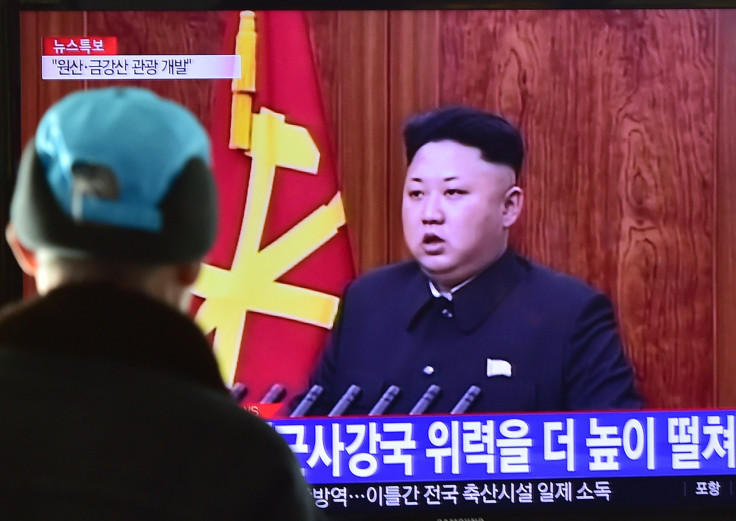Kim Jong Un Unpopular Among North Korean Students Skeptical Of Propaganda: Report

North Korean leader Kim Jong Un's alleged popularity problem among residents could be starting at a young age. Schoolchildren in North Korea "do not even consider Kim Jong Un to be a real leader," Daily NK reported this weekend, a problem for a regime that's constantly pushing "juche," an ideology that encourages reliance on the 32-year-old commander and overall political system,
An anonymous source living in Pyongyang told Daily NK that the country's youth were simply not interested in Kim, who took over for his late father in 2011, the way previous generations were in their state leaders. At Kim Jong Il's funeral, for example, mourners turned out in droves to pay respect to and bawl over the diplomat. Some even considered him a deity.
But the source said today's students were indifferent, if not skeptical. "The students giggle and sneer when they watch propaganda documentaries that brag that, at the tender age of 3, Kim Jong Un was able to spell difficult words like Kwangmyeongseong Changa (‘hopeful paean’),” she added. "They also say things like: ‘I’d rather watch a home movie than this!’”
Other propaganda campaigns have inspired similar mixed reactions among North Korea's young people. Last March, there was backlash when all male university students were required to get their hair cut in the same style as Kim. "Our leader's haircut is very particular, if you will. It doesn't always go with everyone since everyone has different face and head shapes," a source told the Korea Times. Earlier this summer, a London professor and Korea expert told the Mirror that citizens were "very cynical about the government."
Perhaps in an effort to reverse this trend, the state mandated an 81-hour, three-year course on the history of Kim in 2014, BBC reported. But that might not work, either. The students already had to complete classes on Kim Jong Il, and when he died, TIME reporter Bill Powell wrote the following:
I asked one person how the students had reacted to the news. Was there wailing, gnashing of teeth, rending of garments? "They were quiet, definitely," this person said. "But there was no crying."
None? "No. None that I saw."
© Copyright IBTimes 2025. All rights reserved.






















